|
* Since 2012, Natural England has approved the destruction of thousands of Mallard eggs - at a single site.
* In addition, the same licence permitted the destruction of Coot, Moorhen, Mute Swan, Canada Goose and Greylag Goose eggs.... Hi folks, I said I'd let you know when I heard back from Natural England following my latest freedom of information request. This time it was regarding the destruction of thousands of wild birds eggs, permitted under an ongoing licence that Natural England has routinely renewed over several years. Eventually I had a response from Natural England, along with a zip file containing documents outlining the numbers of eggs approved to be destroyed under this regularly renewed licence, since 2012. It would seem that the licence goes back even further than that - but records prior to 2012, according to Natural England, "are no longer held and have been destroyed in accordance with best management records practice." Much of the information contained in the response has been redacted, hidden due to concerns over security, should the licence holder's identity be made public. Due to these redactions, I can't tell you the organisation that is destroying the eggs of wild birds, nor can I safely divulge the location. But I can tell you that since 2012, Natural England has approved the destruction of thousands of Mallard eggs - at a single site. In addition, the same licence permitted the destruction of Coot, Moorhen, Mute Swan, Canada Goose and Greylag Goose eggs. Why? To protect a zoological 'collection'. In order to protect selected waterfowl species contained within the 'collection', native wild birds are deterred from breeding at the site. To achieve this, the organisation is allowed (by way of Natural England's licence) to destroy the eggs of certain wild birds deemed undesirable within the boundary of the site. The organisation holding the licence aims to breed various species of birds (some of them described as 'exotic waterfowl' species) as part of wider conservation efforts. It sounds like a noble cause, except that it entails destroying native species of birds in the process... The licence holder points out that the native wild birds are welcome to breed outside the boundary, where there is a large area of managed nature reserve. The problem is that the local native species of birds don't seem to recognise that the area within the 8 foot high fence surrounding the site is no-go territory for them. The organisation running the site says that their "conservation aims are to protect both zoological and native species from disease and aggression. [We] have numerous exotic waterfowl on site which are bullied by the more aggressive native waterfowl which dominate managed nesting sites." "As the wild birds lay eggs they draw in avian predators which prey on their eggs and chicks (Herons, Corvids and Gulls) which in turn also predate the eggs of the exotic waterfowl which we are trying to breed." It all sounds like a complete mess, albeit one founded on an idealistic plan. Conservationists playing 'Mother Nature'. To my mind, that is never an ethical strategy and rarely successful in the long term. In this case, it will just result in crippling the local population of wild birds - it's fairly obvious that there would be thousands more Mallards, for example, if their eggs were not routinely destroyed, I mean it's not rocket science is it...? In issuing the licence, Natural England clearly believes that native species populations in the area will not be adversely impacted. Mallards though are a vulnerable amber listed species in the UK - how can anyone justify destroying their eggs? I've been through the data supplied in response to the foi request, and have come up with a shocking estimate of the numbers of wild birds eggs potentially destroyed - in the name of conservation - under this licence over the past few years. The figures since 2012 suggest that the licence holder has been allowed to destroy more than 3000 Mallard eggs. A similar combined number of Coot and Moorhen eggs and more than 2,500 Greylag Geese eggs. Eggs of Mute Swans and Canada Geese were also approved to be destroyed. In total, several thousand wild birds eggs permitted to be legally destroyed, all in the name of conservation. It's odd, isn't it - though perhaps not surprising - that the much loved Mallard is now amber listed, a threatened species in the UK. Yet this organisation was allowed to destroy thousands of Mallard eggs, in order to protect other selected species. I don't call that conservation, I call it misguided and irresponsible. Although I can't tell you right now exactly where this is happening, suffice it to say that it's yet another example of lethal control that has been enabled for years by Natural England and their questionable licensing system. This is just one example. I wonder if our wildlife would be better off without bodies such as Natural England altogether (and without some conservation organisations too) because however well intentioned they set out to be, they seem to lose sight of the welfare of wildlife and instead focus on their blinkered mission to 'manage' it - by way of lethal control. I don't know, sometimes it feels like a futile task pointing out anomalies to those who should already know better. The key to real conservation is clear - it relies on individuals on the ground, making space for wildlife in whatever way they can - without killing inconvenient species in the process. As for the particular case outlined above, who is to blame? Well the licence holder can only destroy the eggs if it has a licence issued by Natural England. And Natural England has seen fit to renew the licence for at least a decade. So I think that says it all. Time for the licence system to be overhauled, reorganised and monitored by those who really care about our natural world. It's a controversial topic, I'd welcome your comments.... Best, Jase
35 Comments
Hi folks,
Two topics in today's update, firstly I've been looking into Natural England's recently published licence data, and one particular licence, (of many), raised questions.... Hundreds of waterfowl eggs licenced for destruction I have asked Natural England, by way of a freedom of information request, to explain why they approved the destruction of hundreds of eggs of Mute Swans (40), Canada Geese (100), Greylag Geese (600), Moorhens (350), Coots (250) and Mallards (500) . These actions were approved under just a single example of their now infamous licences. I don't know about you, but I've seen a marked decline in the numbers of all these species at a local level. It is clearly wrong headed to licence the destruction of their eggs. What are they thinking?? This particular licence was renewed last year, and it has been active for a number of years, meaning that many thousands of eggs could have been destroyed. Thousands and thousands of wild birds lost to the world. This is a tragedy, it is unacceptable. And it is just one of the licences that Natural England approves and issues each year, with little accountability and next to no direct monitoring of the actions taken. In years to come, this whole method of 'managing' wildlife will likely come to be seen as a national disgrace. Well, in regard to my freedom of information request about this mass destruction of wild birds' eggs, Natural England have informed me with 'regret' that they "must extend the time limit for responding by a further 20 working days, because of the complexity nature of the request". Not really surprising I suppose, the wholesale destruction of wild birds' eggs is going to take some explaining after all.... The second piece of news today is also really disheartening I'm afraid.... Harvesting 'gourmet' gull eggs - licences approved for 2024. It's the time of year when 'traditionally' the eggs of Black-headed gulls have been harvested to satisfy the gluttonous end of the fine dining market. Our campaign has helped to limit this unsavoury trade, and we have seen the withdrawal of most licences that enable the practice. It makes no sense at all to continue with licensing the harvesting of eggs of a threatened (amber-listed) species, for human consumption. It's patently obvious that this anachronistic practice should end. But two stubborn licences remained in place last year, in North Yorkshire, supported and approved by Natural England. The hope was that these last remaining licences would finally be withdrawn, as they have been in Hampshire, another traditional egg collecting area. In 2023, these Yorkshire licences enabled the collection of 2,500 eggs to satisfy the appetites of well-heeled diners. And now, unfortunately, Natural England has - in its wisdom - decided to renew the licences again this year. It's a disgusting trade. And it should stop. Explaining their decision to renew the licences again this year, Natural England told me "The collection of Black-headed gull eggs is a licensable activity under the Wildlife and Countryside Act 1981 [...] the licensing team undertook a site visit to one of the collection sites last year and can confirm the colony appears healthy and has grown substantially since the previous survey. At the national scale, the cumulative effects of black headed gull egg-collecting are considered very small in relation to the national population and egg production. Therefore, we continue to believe licensing at this scale is sustainable." I think they're wrong. It might (possibly) be sustainable - just - but it's most certainly not ethical. I know many of you will agree. In my response, I told Natural England the following... "It is indeed very disappointing to hear that Natural England has continued to sanction the two remaining licences, permitting the harvesting of Black-headed gull eggs. I know that there will be much consternation over this among environmentalists, many of whom will struggle to understand the rationale behind the decision." Rest assured I'll be in touch again when I have some more answers regarding the destruction of the waterfowl eggs. It should make for interesting reading.
Natural England have now published their 2023 wildlife licence data, including the complete figures for the lethal control of wild birds. (Please see at the end of this post for a link to the data)
As I begin to trawl through it all, I can see that there remain significant areas of concern... Songbird hunting for 'sport' One of my particular bugbears is the issuing of licences to hunt songbirds (including some red-listed species) using falcons. I highlighted this matter last year and at the time I implored Natural England to reconsider these particular licences which are extremely contentious and have little public support. Unfortunately they were resolute in keeping these controversial licences active, although they hinted at a potential change of policy when they told me there was no plan to reform them "in the short term" - nevertheless through 2023 they continued to issue them - with the result that a dozen licences were approved to hunt skylarks, potentially resulting in the deaths of more than 100 of these iconic and rare birds. Skylarks are just one of the species that can be legally hunted by falconers in England, the list of 'quarry' species includes many of high conservation concern, including Fieldfare, Redwing, Meadow Pipit, Mistle Thrush and more. Natural England's refusal to acknowledge public disquiet over these archaic licences is cavalier and not a good look for them. Cormorant hunting There are still high levels of Cormorant culling, 2023 seeing an increase in licences over the previous couple of years (a whopping 439 licences were issued to cull them last year, which could affect huge numbers of these impressive birds). This is a real worry; with little or no monitoring of these licences, it's pretty much a free-for-all hunting spree in the countryside. Nobody really knows how many of the birds might have been shot. These particular licences are handed out liberally, and whether or not you support the calls from anglers and fisheries to 'control' Cormorants, the number of birds that can be killed each year is clearly far too high. I don't think it will be long before we notice Cormorants disappearing from our waterways altogether in some areas. And before anyone attempts to justify the culls, I'll just remind them of the fate of the Passenger Pigeon..... Gull eggs for human consumption I'm now waiting on Natural England's decision over the licences allowing the abhorrent harvesting of Black-headed gull eggs for human consumption - in the past couple of years we have seen a reduction in the numbers of these gull egg licences, thanks to our campaign, but last year two still remained in place in Yorkshire, which permitted the taking and selling of thousands of eggs. I have strongly condemned these licences and have been trying to persuade Natural England to withdraw them all. Humans don't need to eat the eggs of wild birds, let alone those in steep population decline - it's an outdated practice that should be consigned to history. Watch this space for an update on this, as I have been told there is no decision on 2024 licences just yet. Killing Starlings for 'air safety' Killing birds for reasons of 'air safety' also raises many questions. For example a licence was issued last year to shoot 100 starlings (a red-listed species) for reasons of 'air safety' on Merseyside, with another licence permitting the shooting of 50 more starlings at an airport in Lancashire. So many species appear on these 'air safety' licences, officially permitting the culling of large numbers of rare wild birds. Meanwhile, common species such as the wood pigeon are targeted in extraordinarily large numbers under these licences, an example being one single licence that approved the shooting of 1000 of these birds, also on Merseyside. Other concerns I've only just scratched the surface of the data, but already there are some other glaring stats to look into, such as the single licence that enabled the applicant to 'take, damage or destroy' several hundred Mallard, Coot and Moorhen eggs. Data available because of our campaign All of this data is in the public domain thanks to our campaign - as it has been since I first persuaded Natural England to publish it back in 2018. Prior to that it was hidden away out of public view - and no wonder as the figures revealed a catalogue of killing and culling in the English countryside. Trawling through the data since then we've succeeded in highlighting anomalies and advising Natural England where wildlife culling has been licensed without due consideration. With regard to many species of wild birds, some would say the killing has been practically out of control for several years. Natural England had been issuing lethal control licences often for spurious reasons and we have questioned that and succeeded in pushing for transparency, accountability and change. There's no doubt in my mind that thousands of birds lives have been saved thanks to pressure from our campaign. The licence data is free to download and view, please do have a good look - it is up to us to highlight any inconsistencies. I am happy to raise questions directly with Natural England if you let me know of your concerns. Email me ([email protected]) and I'll do my best to follow up on it. NatureScot I'll also be in touch with NatureScot again soon, as they are due to publish their own licence data - for Scotland - in due course. With NatureScot's highly dubious record of enabling the killing of unfathomably huge numbers of gulls north of the border, that should make interesting reading... So, I'll be delving into the data further, it makes for depressing reading but at least we can all now see it, and ask questions over the 'management' of nature by the authorities. Natural England data is HERE Our campaign petition is HERE
* The RSPB culled 345 moles at one of their reserves in 2022.
* In this age of rapidly diminishing wildlife, shouldn't the RSPB be setting an example - not joining in with the mass killing of native wildlife? The RSPB and the mass mole cull The RSPB culled the moles at one their 200+ reserves. Their annual vertebrate control summary published in December, states that they killed 345 moles at a single location, though they don't specify which one, (it might be helpful, for clarity and transparency, for the RSPB to include locations in their data...) The reason they give for culling the unfortunate mammals is a "listeriosis risk in cattle". Now, here's where the whole thing gets messy because there are many differing opinions over the science behind the claim that moles are a significant cause of listeriosis in farm animals, some suggesting that the risk is overestimated. The soil from a mole hill can contain listeria bacteria, and if it contaminates grass consumed by animals, there is a potential risk that the animals can contract the disease. Some say this risk can be mitigated simply by flattening the mole hills as they appear, many others say that moles can be moved along harmlessly by using simple cost-effective sonar deterrents - or just left alone. Futile exercise Regardless of the RSPB's motives for killing the moles, it's pretty obvious, I think, that removing that many moles from a location will merely encourage other moles to recolonize the area - which means more molehills and more "risk" - whether that risk is real or not. So it's perhaps something of a futile exercise, albeit one resulting in masses of dead wildlife, especially if the lethal control is ongoing. The RSPB should know better and I wonder who advised them to carry out the cull, which many would say was unnecessary - and unethical. Not just moles.... The RSPB say that they "see the killing or removal of vertebrates as a matter of last resort..." but nevertheless they saw fit to cull not just the 345 moles, but many other species too at their reserves, for example 400 foxes and nearly 1000 red deer. We are in the midst of a biodiversity crisis. While culling a few hundred moles might only have a local impact on the conservation status of this animal, the RSPB's decision to kill them remains highly questionable, both ethically and morally. The RSPB no doubt do a great deal of good work across their reserves, but I would suggest that culling hundreds of a single species at one of their sites - in order to pursue what appears to be an experiment in nature management - is lacking moral clarity and is certainly out of touch with current efforts to preserve what survives of our fast diminishing native fauna. There might - rarely - be rational reasons to control some animals in some circumstances, but culling hundreds of moles seems entirely avoidable and unnecessary. More legal protection for moles Many environmentalists agree that moles, one of our most loved native mammals, desperately need more legal protection. Unlicensed lethal control of these diminutive creatures is prohibited in many civilized countries like Germany and Finland, but here in the UK any individual or 'pest controller' can embark on a killing spree with very few restrictions - and no consequences. Moles play an essential part in maintaining a healthy ecosystem and it's high time these amazing animals were afforded more legal protection in this country - then even the likes of the lofty RSPB would need a licence before even contemplating the massacre of our treasured wildlife.
Hi folks,
Just a heads up that I'm expecting Natural England's 2023 wildlife licence data to be released imminently. Last month they told me it was scheduled for the end of February but, perhaps not surprisingly, that didn't happen. It's not unusual for it to be late - and for me to have to chase it up. Anyway I'm asking them again today for a publication date. I'll post a further update when the data comes out and would urge everyone to take a good look when it's available. What will the data reveal....? I don't need to remind you that the annual licence data is in the public domain purely thanks to our campaign - as it has been since I first persuaded Natural England to publish it back in 2018. Prior to that it was hidden away out of public view - and no wonder because the figures revealed a catalogue of mass killing and culling in the English countryside, all officially sanctioned by the government's nature advisory body Natural England. By trawling through the data since that first release, we've succeeded in highlighting anomalies within the lethal control statistics for birds in particular and advising Natural England where wildlife culling has been licensed without due consideration. In some cases, the killing was practically out of control for years. Natural England had been issuing lethal control licences often for spurious reasons, and so I asked questions over the integrity of the licensing system; this led to discussions with them, resulting in more transparency, accountability - and change. There's no doubt in my mind that thousands of birds lives have been saved thanks to pressure from our campaign and all of the wonderful citizens who support it. Incidentally we now have more than 400,000 signatures on the petition, that's a lot of potential people power to harness. Areas of concern It will be interesting to see whether levels of lethal control have fallen, or not. Areas of concern in the past have been high levels of Cormorant culling, licenced hunting of songbirds and the lethal control of various species of gull (though this has been even worse in Scotland and I'm also waiting for the latest figures from NatureScot in due course). RSPB culling wildlife On a separate - but related - note, it's also of great concern to me that the RSPB are still busy killing birds and mammals for various reasons that they try to justify by assuring us all that they only do so "as a matter of last resort". They kill significant numbers of some of our most loved species. For example, in 2022, they killed nearly 1000 Red deer, more than 500 Roe deer, 400 Foxes and - would you believe - 345 moles. Oh, and the RSPB, whose very name suggests it exists to protect birds, also culled more than 300 crows and 175 Greylag geese. I think it's an appalling record and I don't accept that it's in the name of 'conservation'. Defra and the dead whales In other matters, I am still challenging Defra's decision to withhold data relating to cetacean deaths around the UK. They haven't released the figures for stranded whales, dolphins and porpoises for the past five years.... ever since a shocking rise in the numbers raised eyebrows amongst environmentalists and begged many questions. More than 1000 dead cetaceans were washed up on UK beaches in 2018 alone. I think the data should be in the public domain in order to encourage open discussion and debate. Defra seem to think otherwise. I have asked the Information Commissioners Office to look into the matter and I'll have more on this in due course. So, that's the update for now. I'll be in touch again soon (hopefully) when Natural England's data is published. Best, Jase
Good news!
Following some recent communications I had with NatureScot, I can announce that they plan to publish their wildlife licensing data on an annual basis going forward, just like Natural England now does following pressure from our campaign. It will be freely available for public scrutiny. Earlier this year, you might remember, we encouraged NatureScot to publish details of their lethal control licences, following which they released some limited data in August. It didn't reveal much detail, for example no mention of the numbers of wildlife affected under each licence; so I asked them to provide more specifics. They were reticent, saying that "while data on the specific numbers associated with each licence is very informative we concluded that the time taken to process this quantity of data would not be viable and would impede on current licensing demand." However, soon after that, they did release the details - and the shocking scale of lethal control became clear - and rang loud alarm bells, raising many questions over NatureScot's licensing procedures and decision making. In just a few years they had approved licences to kill thousands and thousands of birds and mammals. Little wonder perhaps that they were reticent to share the details. The good news The good news is that we can now look forward to regular declarations of licence data from NatureScot, which will be available for public scrutiny, similar to what we now have from Natural England. This in itself means much more transparency around the system and therefore more accountability over the licences. And all in public view, which is something I've been campaigning for over several years. I believe we have a right to examine this kind of data from governmental bodies, so that we can ask questions and where necessary push for change. More detail Though I haven't got any specific dates yet for the publication of the statistics, I have been told that the data will be collated starting in the new year and it should include licence 'returns' information - that's the actual numbers of birds and animals reportedly killed under each licence. These licence returns generally rely on the honesty and integrity of the licence holder in reporting the figures accurately, but even with that slightly flawed system of monitoring licences, the more information in the public domain the better. NatureScot told me "We plan to publish it [the licence data] annually so we can include the returns data and everyone can see how much lethal control was actually undertaken rather than just the numbers that were licenced. We will start collating that data in the New Year." So it is good news, and thanks everyone for helping to achieve this result. (Meanwhile, there is also a separate ongoing review of species licensing in Scotland, which should hopefully bring other reforms to NatureScot's licensing system. This seems to be the 'investigation' that the first minister referred to a couple of months ago after the lethal control licence data was released. I'm told there should be an update on this review "in the coming weeks") Best, Jase A note on whales... Briefly, on another matter, an update regarding dead whales..... I've been trying to find out how many cetaceans (whales, dolphins, porpoises) have been washing up on our beaches; but Defra (who hold the information for England and Wales) have been less than forthcoming with the numbers. We know there were more than 1000 cetaceans washed up dead and dying around the UK coast in 2018 - an unusually high number - but since then the figures have been kept secret. My hunch, as I've mentioned before, is that the proliferation of wind farm developments is causing havoc to marine ecosystems, and that the ongoing rapid industrialisation of our seas is affecting the delicate sonar of cetaceans causing them to strand. Defra rejected my freedom of information request in which I asked them to share more recent data on whale deaths. I challenged them on this but they have doubled down on their decision. The matter is now with the Information Commissioner’s Office. I'll bring you more on this in due course.
Hi folks,
A quick update for you, as the countdown to the festive season begins, just to let you know that 1) I'm still here, and 2) I am still working on the campaign! It's just been a little quiet of late, which is a good sign as there haven't been any major questions to ask the UK nature agencies since the last updates. Licences and more... However, shortly I will be ensuring that the 2023 wildlife licence data is being prepared by both Natural England and NatureScot, and pushing for publication dates for both data sets. Natural England normally release theirs as early as February (or as late as June!), while NatureScot have yet to confirm how often they will publish theirs going forward, after we successfully pushed them to release a full set of licence data last summer - which revealed some worrying statistics.... On this matter, in the past week or so I've been in touch again with NatureScot to ask for an update on the investigation promised by Scottish first minister Humza Yousaf into the shocking number of wildlife licences issued north of the border. Unfortunately, at the time of writing, my contact at NatureScot hasn't responded to my enquiry, which is frustrating - but I'm persistent as you know and I'll try again next week. While the cynic in me is not expecting there to be any major developments on the investigation, you just never know.... I have also asked them when they plan to publish the next set of licence data. I'll update everyone on this in due course. Black-headed gull eggs Meanwhile, back south of the border, in the new year I'll also seek to clarify with Natural England the situation regarding Black-headed gull eggs after all the anomalies of last year when some eggs still made it on to the open market despite Natural England withdrawing nearly all egg harvesting licences. Until every last licence is withdrawn, we can't know whether eggs are on sale legally or illegally. So that's a task for January. Secrecy over number of whale strandings On a side issue, some of you might know that I have been investigating the rapid increase in cetacean strandings around the UK coastline. Shockingly, there were more than 1000 whales, dolphins and porpoises washed up dead and dying in 2018, as outlined in the CSIP (Cetacean Strandings Investigation Programme) annual report to Defra. Since then the figures have been hidden by both organisations and I wanted to know why. My hunch is that there might be a direct correlation between the rise in whale strandings and the proliferation of offshore wind farm developments; being able to see the figures might shed some light on to the reasons for the increasing mortality rates. But when I asked them in October, neither the CSIP nor Defra would let me see the data. And I wonder why.... Defra point-blank refused my freedom of information request, saying it wasn't in the public interest to share the data, and I've challenged their decision on that. Watch this space because I think there might be some interesting updates on this in due course. For those of you interested in my articles on this subject, most are on my separate Medium.com blog, (click: HERE.) And that's all for now I think. So - for those of you in the UK - I hope you're enjoying the crisp winter weather, and to everyone who follows me, wherever you are: all best wishes and sincere thanks, as always, for your continued support of our campaign! Best, Jase
Pressure from our campaign got the data released - now there is to be a full review of NatureScot's wildlife licences - Scotland's first minister said the lethal control figures "cause us all to pause and reflect" and has promised an investigation.
Last month our campaign successfully pressured NatureScot into releasing its wildlife licensing data into the public domain, so that everyone could see the alarming statistics. I reported on this breakthrough and hailed it as a significant success for our campaign. Fast forward to September and some media outlets finally commented on the shocking figures that the data revealed. It's somewhat grating that none of those reporting the news gave a nod to our campaign, without which they probably wouldn't have the figures in the first place, however it's enough to know that we enabled the wider public to be made aware of the Scottish wildlife culls - and that has always been one of our primary aims. That said, it's still particularly frustrating that some animal welfare organisations have apparently expressed their 'shock' at the figures - in my opinion these animal welfare organisations should have made it their business to know what was going on under their noses, long ago. As some readers will know, NatureScot actually sent me the licence data earlier this year, as part of a freedom of information request, although it took months to persuade them to publish it openly for all to see, which they finally did - and that couldn't have happened without the support and backing of 400,000 people behind our campaign, so well done all. Scottish first minister promises investigation Earlier this month, in response to a parliamentary question raised by Christine Grahame, convener of the cross-party group on animal welfare, the Scottish first minister, Humza Yousaf, promised an 'investigation' into the shocking levels of officially sanctioned killing in Scotland. He said that the numbers cause us all "to pause and to reflect"; he added that the government will undertake a "full review of the species licensing system" and he will ensure that the appropriate cabinet minister investigates the numbers raised. (there's a video clip at the end of this post) I wouldn't be holding your breath though, you see I'm cynical and in my experience it takes more than a little prompting to remind politicians of their promises. But it's a good start. With the successful release of both NatureScot and Natural England licence data, I think we can take a moment to pat ourselves on the back for these major successes of our campaigning. It's been a hard slog, albeit one that has been well worth while - indeed essential - for the benefit of both wildlife welfare and public awareness. The campaign continues So, in achieving another one of our goals, I'm expecting a quieter period for our campaign - but please rest assured that I will continue to keep a watch over the activities of these government nature agencies and I'll be renewing pressure on them when the next set of statistics is due. Natural England generally publish theirs in the first quarter of the year but you might remember that they are sometimes a little 'shy' when it comes to releasing their figures and I've had to cajole them in previous years. I'll also be following up with them regarding the Black-headed gull egg licences before the next harvesting season is due to begin, to ensure that the practice is outlawed. That's all for now but I'll keep everyone in the loop with any developments in the meantime. Best, Jase Link to our campaign: HERE Link to NatureScot data: HERE Link to Natural England data: HERE Below: Christine Grahame, convener of the cross-party group on animal welfare, asks Scotland's first minister about the licences. |
If you appreciate what I write about, please consider showing your support by buying me a virtual coffee!
Click the button below! Thanks :) Archives
July 2023
|
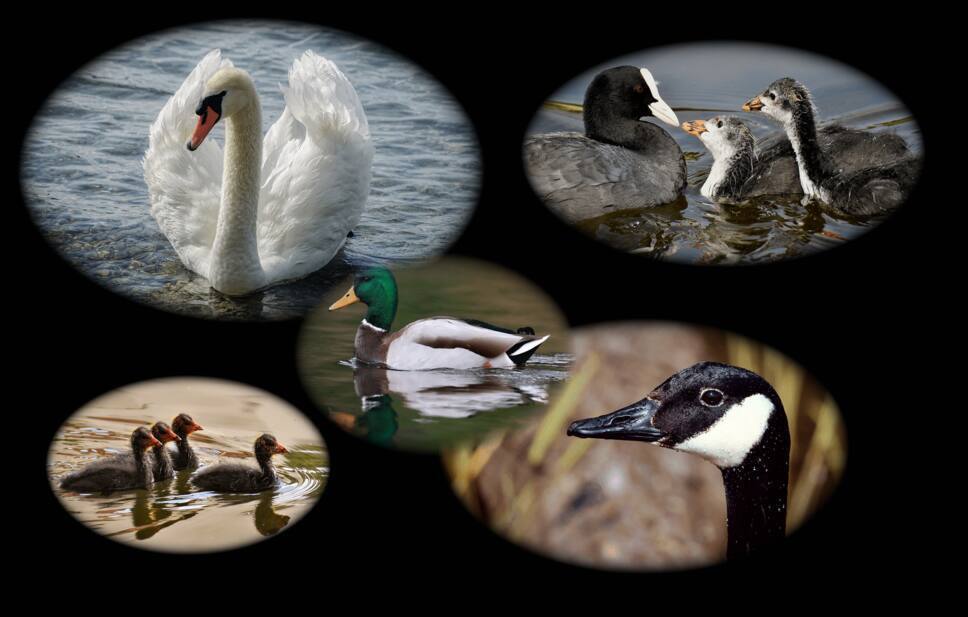
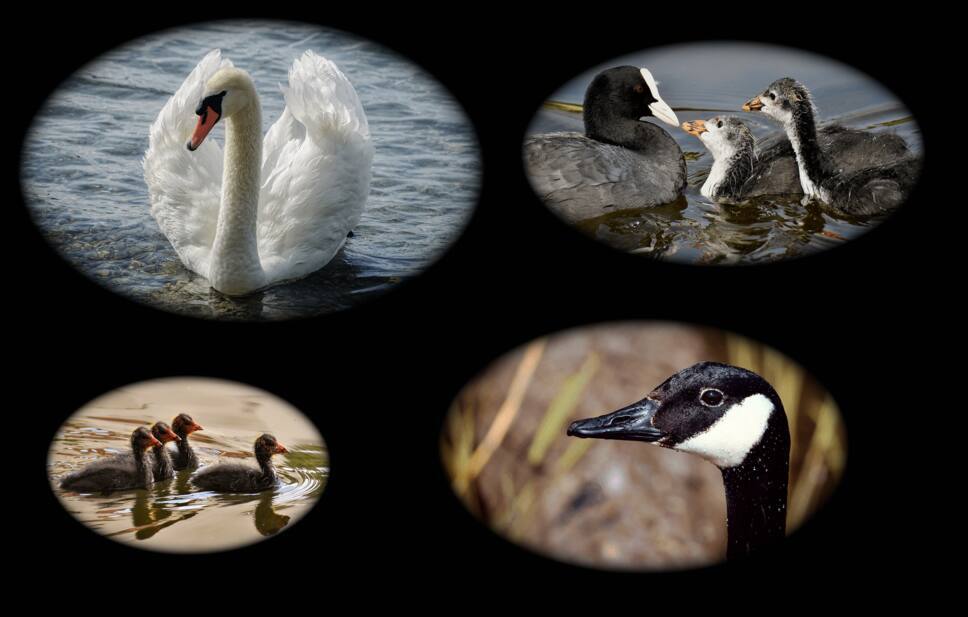
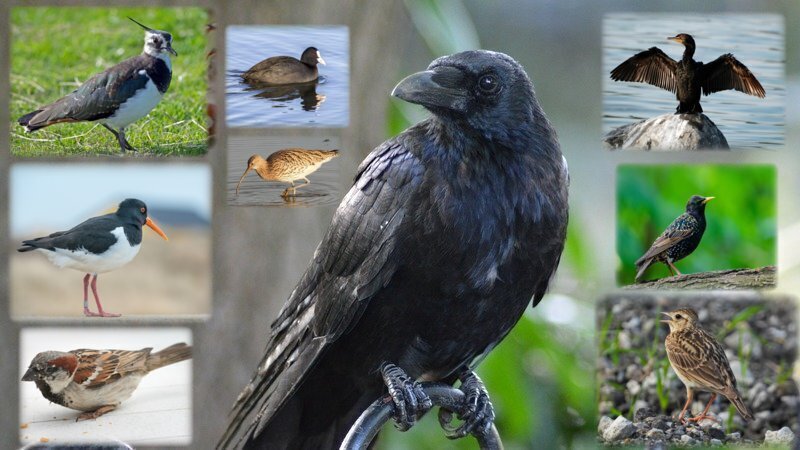
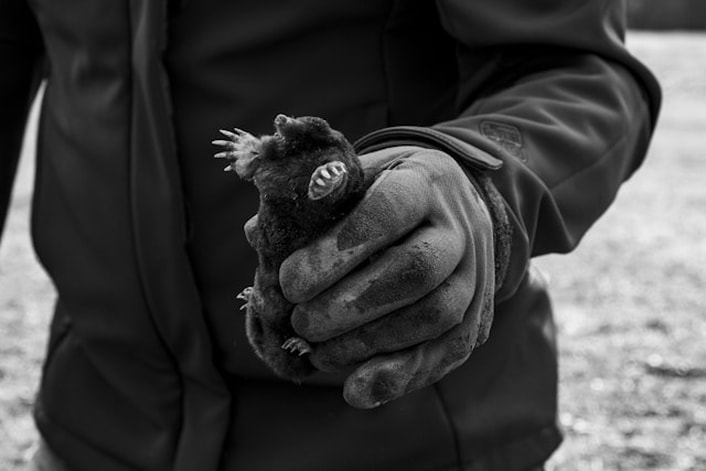
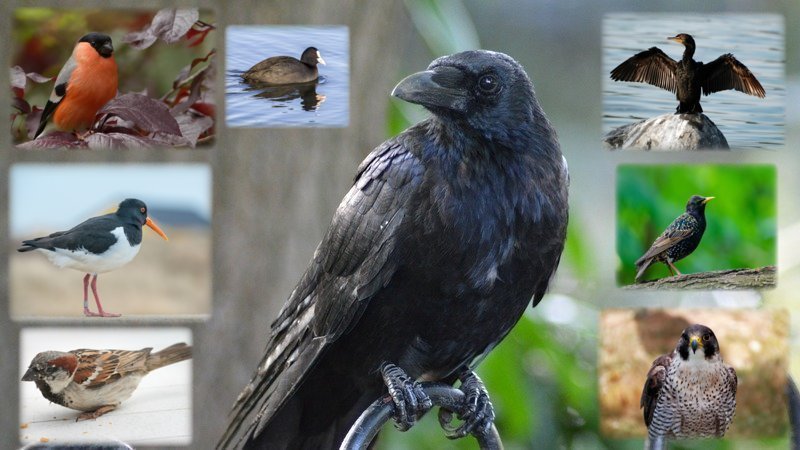
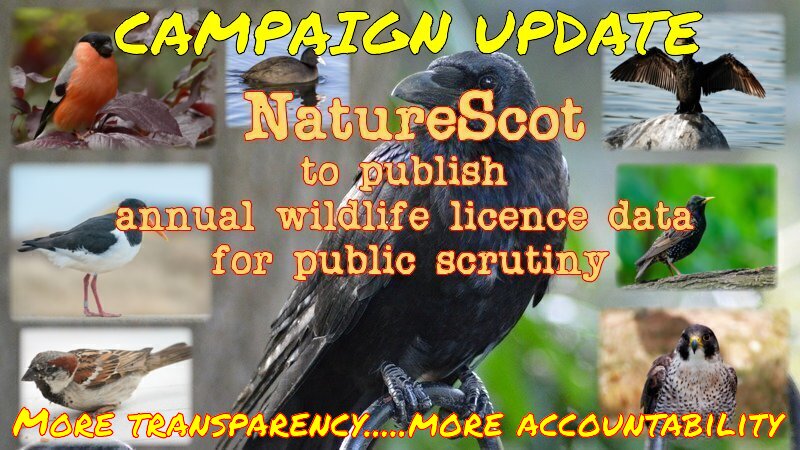
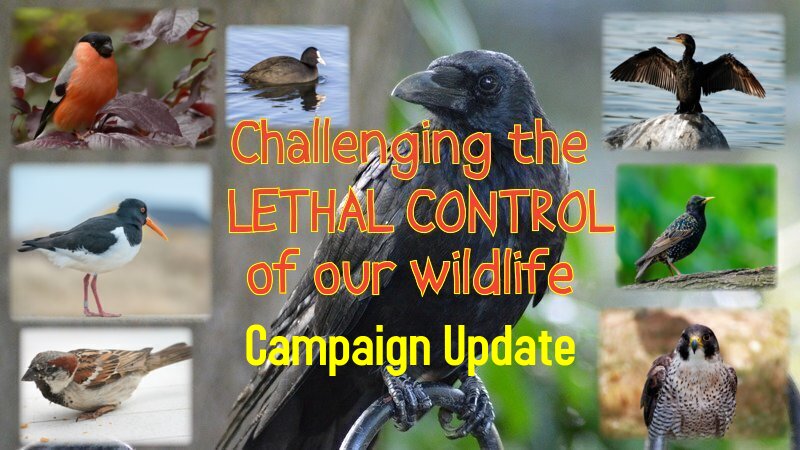

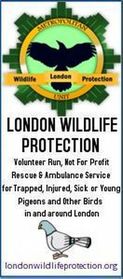
 RSS Feed
RSS Feed